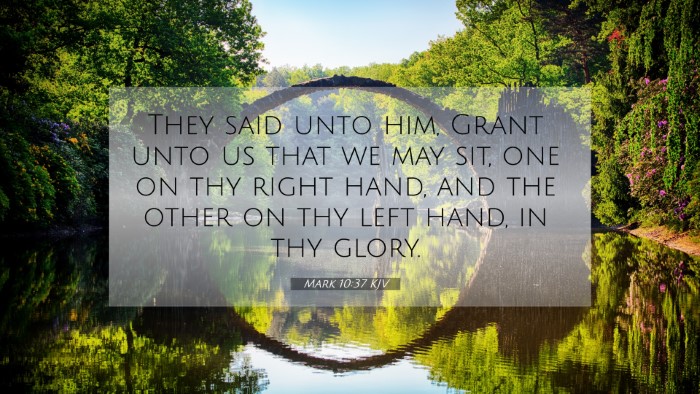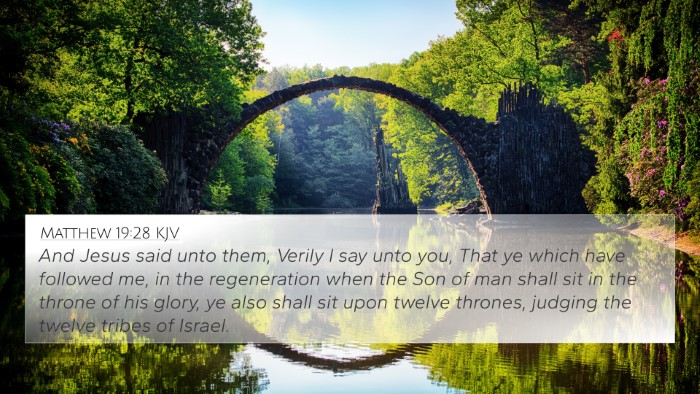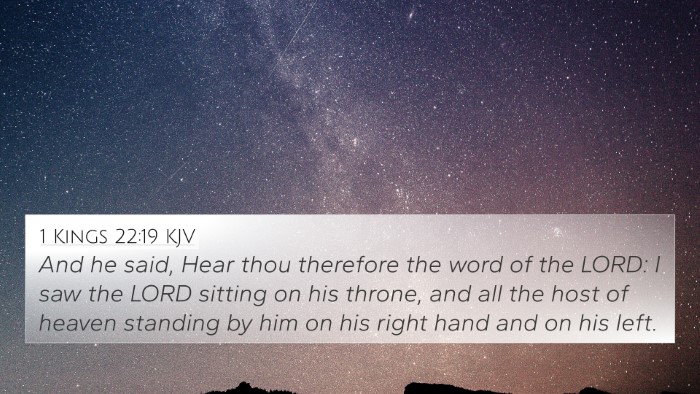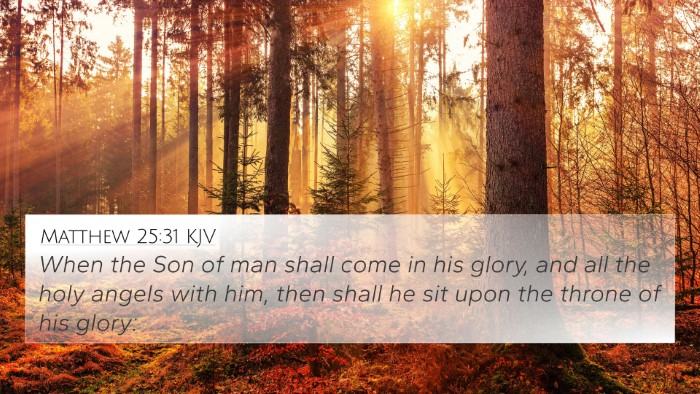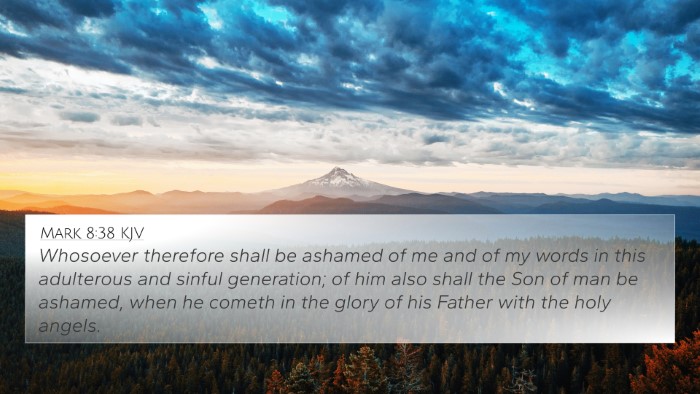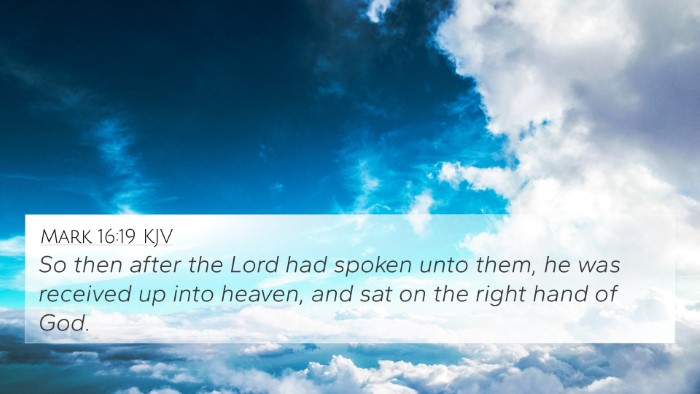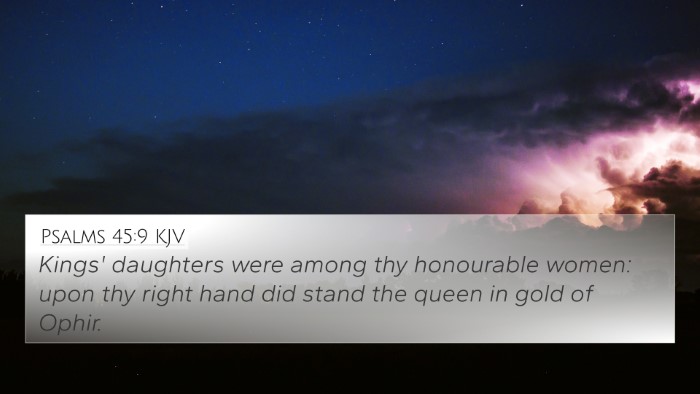Understanding Mark 10:37
Mark 10:37 states: “They said to Him, ‘Grant us to sit, one at Your right hand and one at Your left, in Your glory.’” This verse is situated within a larger narrative in which the disciples approach Jesus with a request that reveals their misunderstanding of His mission and the nature of His kingdom.
Summary of Key Insights
- Disciples' Ambition: This verse highlights the ambitious nature of the disciples, who sought honor and prominence in the coming kingdom. Their request is a misunderstanding of Jesus' mission, reflecting a desire for power rather than service.
- Misalignment with Jesus’ Teaching: Their desire to sit in places of honor shows a lack of understanding of Jesus’ teachings on humility and servanthood, which He later clarifies in His response.
- Expectation of Glory: The disciples are anticipating an earthly kingdom where Jesus would reign gloriously, indicating their limited comprehension of the spiritual kingdom Jesus represents.
- Contrast in Perspectives: This request contrasts with Jesus’ perspective, which emphasizes suffering, sacrifice, and service instead of seeking positions of power and glory.
Commentary Insights
Matthew Henry's Commentary emphasizes the follies of the disciples' request. They seek seats of honor without understanding what it means to share in the sufferings of Christ. He points out that these seats signify a position of authority and glory, which the disciples fail to recognize comes only through trials.
Albert Barnes' Notes elaborate on the implications of their request. He notes that they should have realized the nature of Jesus’ kingdom, which would not result in immediate glory or honor on earth. Instead, it would be a kingdom marked by suffering and servitude.
Adam Clarke's Commentary adds that the disciples’ request is born from human ambition and the cultural expectations of leadership. They expect to share in the reward without the necessary sacrifice, which Clarke identifies as a common pitfall for believers.
Bible Cross-References Related to Mark 10:37
- Mark 10:42-45: Jesus teaches about servanthood and the inversion of worldly greatness.
- Matthew 20:20-28: Another account of the same request, detailing Jesus’ response on greatness through service.
- Luke 22:24-27: A discussion among the disciples regarding who is greatest, which Jesus counteracts with lessons on humility.
- John 13:13-15: Jesus washing the disciples' feet, illustrating true leadership as service.
- Philippians 2:5-7: Paul speaking on Christ's humility and servanthood as a model for believers.
- James 4:10: A reminder that humility before the Lord leads to exaltation, contrasting the disciples' request for position.
- 1 Peter 5:5-6: Instruction on humility within the church and the promise of God’s exaltation.
Connections Between Biblical Themes
This verse connects broadly to themes of humility, leadership, and the nature of Christ’s kingdom throughout Scripture. It serves as a basis for thematic connections in the Bible regarding how the followers of Christ should approach power and service.
Tools for Bible Cross-Referencing
To better understand verses like Mark 10:37 and their thematic implications, one can utilize Bible cross-reference guides and Bible concordances. These tools allow readers to find connections between Bible verses and explore themes more deeply.
How to Cross-Reference Effectively
When studying verses such as Mark 10:37, one can use methods like:
- Identifying Keywords: Look for common words and themes like "glory" and "greatness." This can reveal connections to other verses.
- Contextual Study: Read chapters surrounding the verse to gather insights on the larger narrative context.
- Comparative Analysis: Study the same stories in different Gospels to note variations in detail and emphasis.
- Thematic Grouping: Gather verses that deal with similar topics such as service, humility, and community in the body of Christ.
Conclusion
Mark 10:37 serves as a powerful reminder of the need for humility and the dangers of ambition within the faith community. The insights from historical commentaries help illuminate the original intent of this request and its implications for believers today.


